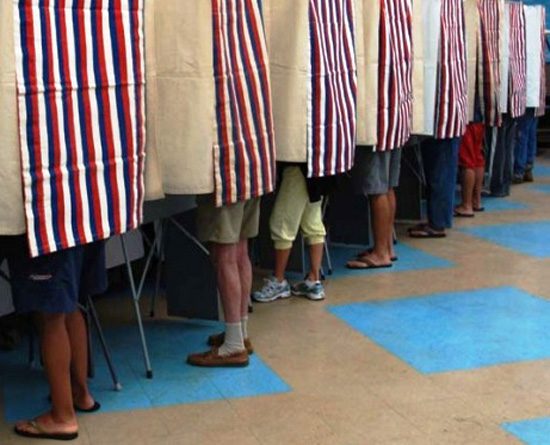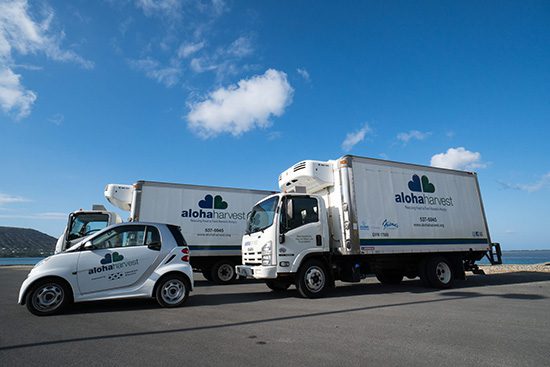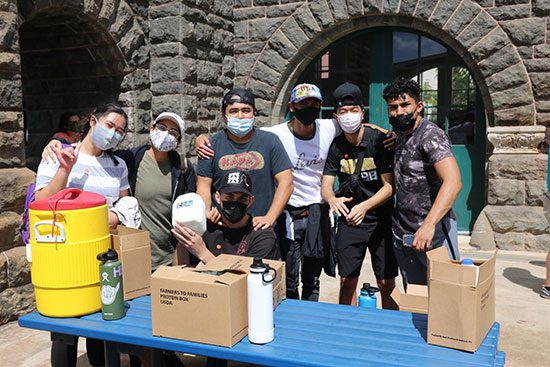
Hawai‘i’s 2018 primary election had 20 percent of the population that voted, according to the State Office of Elections, and about 50 percent of those casted “blank votes” for the Office of Hawaiian Affairs (OHA), a concern for some who feel this is not a good sign.
However, voting for OHA trustees is open to all registered voters in the state, regardless of ancestry.
“The low voter turnout for OHA means two things to me: either voters do not feel it is their ‘place’ to vote for representatives of a Hawaiian trust because they are not Hawaiian, or they do not see any candidates on the ballot whom they believe can do the job and are trustworthy,” said WCC alumna Shana Logan. “What they must realize is that what is good for Hawaiians is good for the entire state of Hawai’i.”
So just what is a Hawaiian, and where does everyone fit into OHA’s agenda? This question seems to have created in the community an unclear view of their role in voting for trustees and a lack of public transparency and oversight with regards to the trustees.
WCC student Camren Cabona-Sukoran said, “I think that everyone fits into OHA because everyone has a voice and an opinion on issues in Hawai‘i. And the way it will get solved is by talking and asking the people what they think about those issues.”
WCC student Dylan Horii agreed, “OHA does matter to me because decisions made will still affect me as a resident of Hawai‘i.”
WCC student Kylee Nishimura advocated for a broad definition of who is Hawaiian, saying that “I think a Hawaiian is obviously someone who was born in Hawai‘i and has Hawaiian blood in them. But at the same time I want to also count the people who aren’t blood Hawaiians as Hawaiians because even though they might not have the blood in them, if they were born and raised here they deserve to be called Hawaiians.”
OHA has the fiduciary duty to manage a trust of more than $470 million earmarked for the residents of Hawaiʻi and Native Hawaiians. The trustees therefore control a broad reach of the land, resources and assets of the state, for the betterment of the Hawaiian people.
Kalawai‘a Moore, head of the Hawaiian Studies department at WCC, emphasized the importance of having the right people as trustees.
“If you get people that are more self serving or people that are not ‘hot’ on the trail of trying to serve the community, it’s a sort of dull body that kind of helps out only some of the people,” he said. “Or if you get people that are doing research that is really important to our community about incarceration, our health structure and our land situation–that research wasnʻt happening 10 years ago. So that’s exciting to see. They’re using resources to try to help us try to look at ourselves and our current situation with a little more detail.”
“OHA was created to address long standing issues that were in our community,” added Konia Freitas, department chair of Hawaiian Studies program at the UH Mānoa. “They (the trustees) serve an important purpose. They should serve the Hawaiian community, and the Hawaiian community should be the decision-makers as to who are the trustees of OHA.”
Freitas continued, “I think it’s very patronizing of government to say that well, everybody can vote for OHA. I simply do not agree with that at all. We are not children, we can make our own decisions. OHA tends to be a lightning rod sometimes because of the makeup of the board. I think the composition of the board of trustees would be incredibly different and more responsive and a different makeup if Hawaiians were the only ones voting on that matter.”
Logan agrees, pointing out that the number of Hawaiians living in Hawai‘i is now only about one percent of the entire population in the state, making them the lowest voting minority as well.
“How can Hawaiians truly be represented by trustees when they are voted in by a majority of non-Hawaiians?” she said. “Although the actions of the Office of Hawaiian Affairs affects everyone, it only makes sense to allow Hawaiians to have the right to say who the trustees will be that handle their assets. Everything can be fairly negotiated on behalf of Hawaiians with outside entities, including the state, only if we can vote in our own trustees.”
The recent 2018 OHA Audit by the state revealed that various trustees were misappropriating funds, which led to investigations by the FBI and the state Attorney General, with one trustee being accused of sexual harassment.
This was not good publicity for the OHA board of trustees during the weeks leading up to the primary election. OHA candidate forums were held by community groups, showcasing a wide range of candidates with many new and re-hashed ideas of what they wanted to do and what their thoughts were about the audit.
Incumbents often chose not to attend many public forums yet gained the most votes in the primary, ahead of the large field of newcomers and veterans vying for a seat on the board. That being the case, it is a sign that it’s “business as usual” at OHA, with those who have been a part of the problem still at the helm of one of the state’s largest and richest entities.
To make any changes, I believe a vote for new candidates would be a step in the right direction. It is imperative that we vote for OHA with a clear understanding of the issues, the candidates and our role in the election of trustees. This is imperative for all voters, Hawaiian or not.
The general election is November 6. To make a change, cast your vote. It’s all our kuleana.
by Ian Jenss, Ka ‘Ohana Staff Reporter





